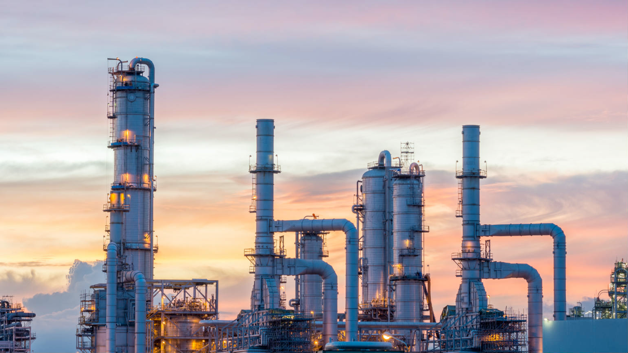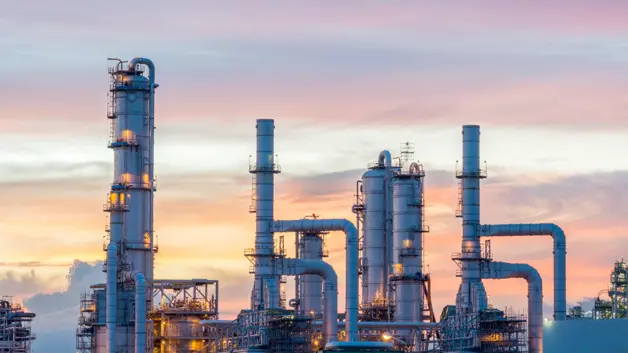
An oil refinery in Saudi Arabia. /VCG
**Editor's note: **Tu Yun is a journalist of China Plus. The article represents the author's views, and not necessarily those of CGTN.
When U.S. President Donald Trump tweeted "Good for the consumer, gasoline prices coming down!", it would never have crossed his mind that the price of crude oil, the raw material to make gasoline, would plunge into negative territory in a historic collapse just one month later.
On Monday, the price of a barrel of West Texas Intermediate crude oil – the main U.S. oil benchmark – for May delivery crashed over 300 percent to end the day at almost minus 38 dollars. The plunge is a huge blow to Trump, who has been seeking to prop up the oil industry, a key sector for U.S. economic growth and a decisive factor in his reelection bid.
The unprecedented fall happened when supply far exceeded demand. The cost of storing oil has overtaken the price at which oil can be sold, meaning that oil producers must pay buyers to take oil off their hands. But major oil producers, including Saudi Arabia and Russia, promised to cut some 10 percent of global production, prodded by the Trump administration, a little over a week ago. The lower output was supposed to keep the prices stable or even drive them up, so what went wrong?
Like a doctor of traditional Chinese medicine, to determine what went wrong we must get to the root of the problem instead of treating only the symptoms. When it comes to propping up oil prices, the coronavirus pandemic is the root factor Washington should have spent more time considering.
As it sweeps across the world, the pandemic has pressed the pause button on many economies. The slowing of human and business activities has resulted in a demand for oil being slashed. The longer the pandemic lingers, the longer the demand for oil will stay at a low level and the longer its price will remain low or even below zero.
Persistent low prices would be a huge strike to oil-producing states, including Texas, New Mexico, California and Colorado. They may also become a deciding factor as to whether swing states, such as Texas and Colorado, will go Republican or Democrat in fewer than seven months.
If they are disappointed by the federal government's performance in protecting the oil sector and turn blue, Trump's reelection hopes would be further reduced given that the latest Gallup poll has his approval rating at 43 percent, down from 49 percent in March. In addition, the disapproval rating was at 54 percent, up nine points from 45 percent.
Pretending everything can go on unaffected and resorting to a hasty reopening of the economy is self-deceiving, since the virus may pounce harder in a second round without the appropriate containment. Only concrete pandemic controls can result in market confidence, social recovery, a steady rebound in oil prices and be the prescription for Trump's reelection success.
(If you want to contribute and have specific expertise, please contact us at [email protected].)
 简体中文
简体中文





